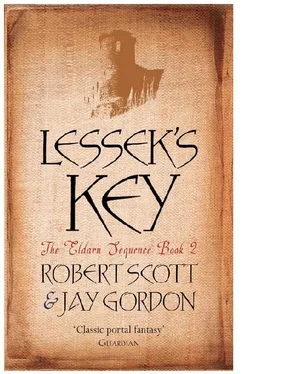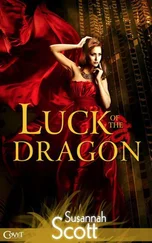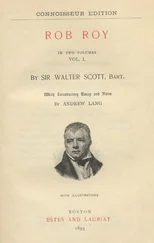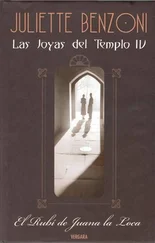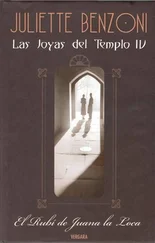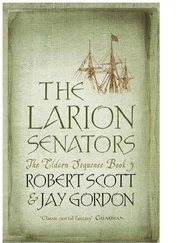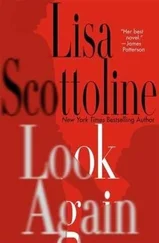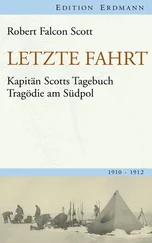Rob Scott - Lessek_s Key
Здесь есть возможность читать онлайн «Rob Scott - Lessek_s Key» весь текст электронной книги совершенно бесплатно (целиком полную версию без сокращений). В некоторых случаях можно слушать аудио, скачать через торрент в формате fb2 и присутствует краткое содержание. Жанр: Фэнтези, на английском языке. Описание произведения, (предисловие) а так же отзывы посетителей доступны на портале библиотеки ЛибКат.
- Название:Lessek_s Key
- Автор:
- Жанр:
- Год:неизвестен
- ISBN:нет данных
- Рейтинг книги:4 / 5. Голосов: 1
-
Избранное:Добавить в избранное
- Отзывы:
-
Ваша оценка:
- 80
- 1
- 2
- 3
- 4
- 5
Lessek_s Key: краткое содержание, описание и аннотация
Предлагаем к чтению аннотацию, описание, краткое содержание или предисловие (зависит от того, что написал сам автор книги «Lessek_s Key»). Если вы не нашли необходимую информацию о книге — напишите в комментариях, мы постараемся отыскать её.
Lessek_s Key — читать онлайн бесплатно полную книгу (весь текст) целиком
Ниже представлен текст книги, разбитый по страницам. Система сохранения места последней прочитанной страницы, позволяет с удобством читать онлайн бесплатно книгу «Lessek_s Key», без необходимости каждый раз заново искать на чём Вы остановились. Поставьте закладку, и сможете в любой момент перейти на страницу, на которой закончили чтение.
Интервал:
Закладка:
Rob Scott
Lessek_s Key
ORINDALE HARBOUR
The creature huddles in the recessed doorway of a waterfront tavern. Closed now, and empty, the windows look in on an abyss, a room so shrouded in middlenight that the glass might mark the entrance to the Fold itself. Light from sporadic sentinel torches left burning along the Orindale waterfront reflect off the windows, but, ignoring the laws of physics, their glow doesn’t bring any illumination to the darkened tavern; the diffuse glow merely bounces back.
The creature knows well that places exist where nothing matters, where light cannot penetrate, where the absence of perception provides for the absence of reality. The Fold. Isn’t that how the old man described it? It’s worse than death, because death, like life or love, is held so close. Death has meaning; it’s a profound event, feared above most horrors, but meaningful nevertheless. This place is worse, more tragic: the Fold embodied. This is a place so devoid of colour and touch, scent and sound, that nothing can survive. This is the place mothers go after the broken bodies of their children are found washed up on a beach or lying in pieces across a field. It’s the end of all things, the event horizon.
Nothing can remain here long – except for the creature. Stooped and broken, hunched at the waist and dragging much of its torso like a disintegrating appendage, the thing in the doorway resembles a tree that has lived too long, the victim of too many woodsmen hacking deep, disfiguring scars. It can stand upright, but that’s painful, that requires effort, and hope, and the creature refuses to have hope. Instead, it waits. Fortified by its ability to see and understand its own condition, as if seeing itself from above, the creature becomes the darkness, dragging it along as it drags its own body. It sees the mossy nubs that work their way through the rotting planks of the waterfront walkways. It steps in the puddles of piss and vomit that surround the taverns. It watches rats battling over half-stripped chicken bones tossed from windows two and three floors up, and insects devouring half-digested bits of venison regurgitated by drunks reeling towards home, their ships, maybe, or the downy beds of the local whores.
One night it finds a finger, lost in a bar fight and on another, a portion of someone’s ear, which it turns over and over in its fingers, trying to imagine the whole from which this bit was severed. Finally, it stashes the lobe in its robes, tucked beside the finger, the chicken bones and the bits of venison, before starting out again.
This wretched thing would be willing to die if it were willing to allow itself an experience so meaningful. Its pallid flesh is hidden beneath the folds of a stolen cloak as it stares out at the Orindale night, listening, waiting and planning. It does have a mission: it is driven by its desire to hunt and kill the black and gold soldiers. There are so many; thousands have come here, and it kills one, two, sometimes five in a night. Men or women, it doesn’t care. It doesn’t dismember them, or eat them – not much of them anyway, there is plenty of food along the waterfront – and nor does it perform deviant acts with their corpses. Instead, the creature slices them open: through the neck is quiet, but the gullet works well, too. It finds some strange satisfaction watching the young Malakasians struggling to replace handfuls of innards, as if packing lengths of moist summer sausage into a torn canvas sack. From some come moist clouds of exsanguinous fog, particularly when they are gutted in the early morning.
The creature’s pain comes and goes, but when it strikes it is searing, nearly unbearable. Beginning in its neck and shoulders, the fire bolts across its back, paralysing its legs and forcing it ever deeper into its crouch. Though it cannot remember the past very well, it knows that it has brought this upon itself. There are hazy recollections of a frigid river, a flat rock, and an aborted attempt to straighten itself, to regain its previous form, but it did great damage that day, hurling itself repeatedly against the unforgiving stone. Then the pain was glorious, making it see things, hallucinations, nearly translucent lights like wraiths scurrying over hillsides and flitting between sap-stained pine trunks. Now it salves its wounds with the black and gold soldiers.
They’ll never capture it. They’ve tried. It outsmarts them easily; it avoids their snares, because it lives among the things that crawl and slither on the ground, safely beneath the gaze of the Malakasian occupation army.
A stray dog happens by, a filthy, disagreeable mutt with mangy fur, a pronounced limp and a broken canine uselessly askew in its lower jaw. The dog gives the creature a low growl, a warning, more out of fear than any real threat. But it’s too late. Brandishing a long knife, the creature pounces. Cat-quick and deadly, it buries its knife in the dog’s throat and twists with such force the stray can do little more than yelp before dying on the cobblestones.
The hood of its cloak falls across its shoulders, revealing an ashen face, a man’s face, sickly-white like the colour of spoiled milk. His eyes focus on nothing. Though bent, he is a big man, and powerful. He doesn’t feel remorse: the animal will make a tasty breakfast and, if he rations the meat, lunch too.
The creature – the man – is distracted by something. Licking at the bloody knife, he peers into the darkness hovering over the harbour. He can make out flames, watch-fires, he assumes, that burn on bowsprits, jib-booms, and stern rails though they appear to float above the water. He closes his eyes and listens: something has happened. One of the ships is coming apart; even from this distance, he can hear beams splintering, masts collapsing and planks pulling free and snapping like hickory knots in a bonfire. He judges the distance at well over a thousand paces and decides it can be only one ship. Hazy recollections taunt from just beyond the periphery of his consciousness, and a feeling: this is good, this vessel snapping in two and sinking to the bottom of Orindale Harbour – but he can’t recall why.
Without warning, and surprising himself, he speaks. ‘They must have made it.’ Then he looks around in terror. ‘What does that mean? Who said that?’
‘They must have made it,’ he repeats and this time realises he has spoken. He is hearing his own voice. It’s as if he hid part of himself, enough to preserve the integrity of who he was… hid it far enough away to allow himself… the creature, that is… to eat things like discarded fish innards, severed ears or vomited venison bits. But he is close enough to hear when his doppelganger speaks.
‘Say that again.’ He is looking anxiously about the abandoned waterfront, still aware of the cataclysm taking place in the harbour, but ignoring it for the moment. ‘Say that again.’
‘The ship, the Prince Marek, they must have reached it.’
Bending slowly, an indistinct blur in the darkness, the hunched creature sheathes his long knife. He peers side to side, aware there are things he doesn’t understand, and mumbles, ‘Good then… back to the hunt.’
Sallax Farro of Estrad tucks the dog’s limp form beneath his cloak, pulls his hood up and hurries south along the wharf.
A tangible silence like a spectre creeps across the countryside. Trees ignore the wind and stand upright; leaves quiet their rustle as onshore breezes fade to a whisper. Waves lapping against the shoreline flatten to nearly indiscernible ripples; seabirds land and nest, their heads tucked protectively beneath wings. Even the northern Twinmoon appears to dim, as if unwilling to illuminate Nerak’s disappearance.
All of southern Falkan draws its shades, closes its doors and waits. Nerak is gone, and Eldarn has not yet decided how it will respond. Like a battered child finally witnessing her father’s arrest, the very fabric holding this strange and beautiful land together rumbles with a growing desire to scream out We are free!, but those screams emerge as a nearly inaudible whimper. Many feel the dark prince’s exit, shuddering for a moment, and then returning to the business of their lives. There is a status quo to be maintained. There are expectations and accountability because, of course, the dark prince may return.
Читать дальшеИнтервал:
Закладка:
Похожие книги на «Lessek_s Key»
Представляем Вашему вниманию похожие книги на «Lessek_s Key» списком для выбора. Мы отобрали схожую по названию и смыслу литературу в надежде предоставить читателям больше вариантов отыскать новые, интересные, ещё непрочитанные произведения.
Обсуждение, отзывы о книге «Lessek_s Key» и просто собственные мнения читателей. Оставьте ваши комментарии, напишите, что Вы думаете о произведении, его смысле или главных героях. Укажите что конкретно понравилось, а что нет, и почему Вы так считаете.
